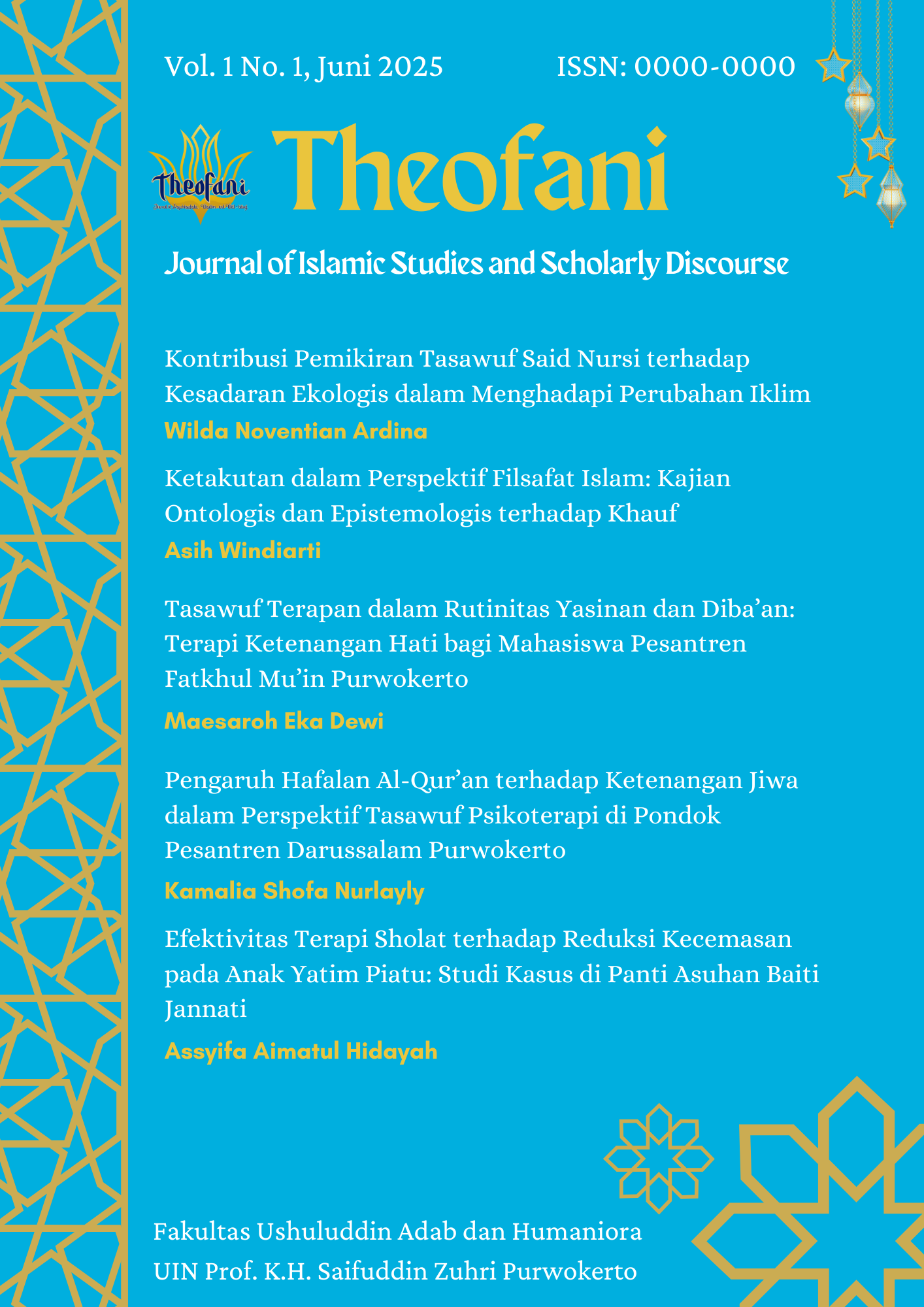Kontribusi Pemikiran Tasawuf Said Nursi terhadap Kesadaran Ekologis dalam Menghadapi Perubahan Iklim
Keywords:
Sufism, Said Nursi, Ecological Awareness, Climate Change, Environmental EthicsAbstract
Climate change is a global challenge that is not only ecological, but also has spiritual and moral dimensions. This article explores how Said Nursi's Sufism can contribute to ecological awareness in dealing with climate change. The research approach used is a literature study by analyzing the main concepts in Said Nursi's thoughts, especially regarding the relationship between humans and nature and spiritual responsibility towards the environment. The results of the study show that Said Nursi emphasized the importance of awareness of the oneness of God (tawhid) as the basis for environmental ethics, where humans are seen as caliphs who are responsible for maintaining the balance of nature. Furthermore, the concept of tazkiyah al-nafs (purification of the soul) in Nursian Sufism also plays a role in forming an ecological mindset based on spirituality and ethics of sustainability. Thus, Said Nursi's Sufism can be an alternative paradigm in increasing more holistic and sustainable ecological awareness.References
Ajzen, I. (1991). The theory of planned behavior. Organizational Behavior and Human Decision Processes, 50(2), 179-211. https://doi.org/10.1016/0749-5978(91)90020-T
Baig, M. A., & Ullah, R. (2021). The role of Islamic spirituality in shaping pro-environmental behavior: A case study of Sufi practitioners. Journal of Islamic Environmental Studies, 10(1), 45-62. https://doi.org/10.24090/jies.v10i1.5642
Berkes, F. (2008). Sacred ecology. Routledge.
Brown, C. S., & Toadvine, T. (2018). Eco-phenomenology: Back to the earth itself. SUNY Press.
Capra, F. (1996). The web of life: A new scientific understanding of living systems. Anchor Books.
Devall, B., & Sessions, G. (1985). Deep ecology: Living as if nature mattered. Gibbs Smith.
Fazlun, K. (2013). Islam and the environment: Ethics and practice. Routledge.
Foltz, R. C. (2021). Islamic environmentalism: A historical perspective. Journal of Islamic Ethics, 5(2), 145-168. https://doi.org/10.1163/25429992-2021IE004
Gade, A. (2019). Muslim environmentalism: Religious and social foundations. Columbia University Press.
Intergovernmental Panel on Climate Change. (2021). Climate change 2021: The physical science basis. Cambridge University Press.
Karam, M. (2022). Sufi ethics and environmental responsibility: An Islamic ecological perspective. International Journal of Islamic Studies, 14(2), 77-94. https://doi.org/10.24090/ijis.v14i2.7896
Mayer, F. S., & Frantz, C. M. (2004). The connectedness to nature scale. Journal of Environmental Psychology, 24(4), 503-515. https://doi.org/10.1016/j.jenvp.2004.10.001
Nasr, S. H. (2001). Man and nature: The spiritual crisis of modern man. ABC International Group.
Nasr, S. H. (2010). The garden of truth: The vision and promise of Sufism, Islam’s mystical tradition. HarperOne.
Nursi, B. S. (2007). Risale-i Nur: The Words. Sozler Publications.
Özdemir, I. (2019). Sufism and ecological consciousness: An Islamic perspective on environmental ethics. Environmental Ethics, 41(3), 267-284. https://doi.org/10.5840/enviroethics201941321
Downloads
Published
How to Cite
Issue
Section
License
Copyright (c) 2025 Wilda Noventian Ardina

This work is licensed under a Creative Commons Attribution 4.0 International License.







